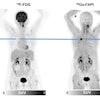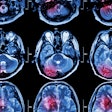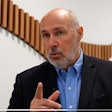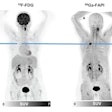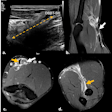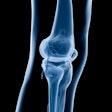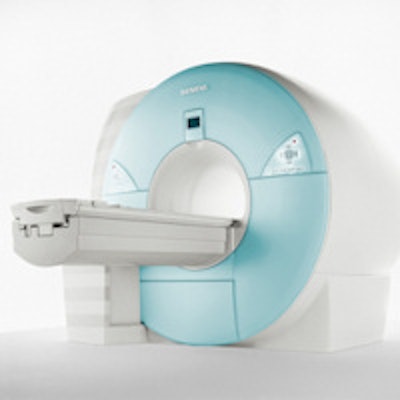
As the first anniversary of François Hollande's presidency approaches, a new report has highlighted the serious shortages of medical imaging equipment in France and the continued long waiting times for an MRI appointment throughout much of the country.
Access to MRI remains both difficult and uneven, and in spite of constant warnings from imaging professionals over the past decade, the situation is increasingly alarming, according to lead author Laurène Courouve, a consultant with CEMKA-EVAL, which specializes in health economics, epidemiology, and outcomes research. It is essential that a public debate now takes place on how to achieve the optimal level of equipment availability and usage, she noted.
Commenting on the report, Dr. Philippe Soyer, PhD, general secretary of the French Syndicate of Public Hospital Radiologists (SRH, le Syndicat des Radiologues Hospitaliers) told AuntMinnieEurope.com: "The delay to have an appointment for an MR exam is very long in France, and this may have a bad influence on the chance for a patient to be treated on time should a severe disease be present. Regarding MR imaging, France can be considered as an underdeveloped country."
Current government policy is to cut funding for new MR equipment, and this is having a significant impact, he added. The Minister of Social Affairs and Health, Marisol Touraine, appears to favor CT due to its lower costs.
Details about the new French-language report from CEMKA-EVAL were posted on the website of the Société Française de Radiologie (SFR) on 26 April. In 2013, it takes 30.5 days on average to get a lumbar MRI examination. After a slight improvement in 2012, the delays are on the rise again this year. Courouve and her colleagues think this can be explained in part by the very low rate of new installations -- only 28 new installations in a year -- while patients' needs are increasing.
Average time (in days) for obtaining MRI appointments since 2003
|
"What about the gap with the rest of Europe?" the authors asked. "MRI equipment in France lags behind Turkey -- this sentence stuck in our minds ... Today, France has still not caught up."
France has around 10.1 MRI systems per million inhabitants, whereas the average for Western Europe in 2012 is 19.5 per million. In Denmark and Germany, the averages hover around 30 per million.
The report found that only three out of 10 regions (Nord Pas de Calais, Ile de France, and Champagne Ardenne) have to date achieved the objective in terms of the MRI availability rate, and some areas remain far below the government target; e.g., Burgundy continues to have around seven MRI units per million inhabitants. Of the 12 metropolitan areas, only one (Aquitaine) has a rate of more than 11 MRI systems per million population. Other areas with unacceptable waiting times are Auvergne, Picardie, Alsace, and Lower Normandy.
These regional inequalities are not synonymous with compliance with good practices, and they lead to lost opportunities, wrote the authors.
Waiting time for an MRI appointment (days), between 2011 and 2013
|
The waiting period for MRI exams remains twice as high as the objectives set, and some regions are characterized by delays of up to 50 days. The results this year are of particular concern because the number of installations in 2012 remained similar to the 2011 level in France, and there is a direct link with the amount of equipment per million inhabitants, they continue. This situation is not acceptable from the point of view of public health and in terms of patients being forced to wait for many agonizing weeks. It also poses an ethical problem because it inevitably leads to loss of opportunity for patients and gross inequalities between different regions of metropolitan France, writes Courouve and her colleagues.
In reality, however, the situation is not quite as bleak as the report suggests, according to a senior radiologist in Paris.
"In France you can get an appointment for an MR study in a very short time in an emergency and when a doctor thinks that his patient really needs an MR," he said. "Another thing: Is the MR study necessarily the best choice?"
He admits it is difficult in France to get an appointment for a MR study in certain situations, e.g., if a patient has suspected cancer and is on vacation at a daughter's home. Overall, the CEMKA-EVAL report shows the situation appears be worse in 2012 than before and is not equal between the regions; the poorer regions usually have the worst rate of MR units per million inhabitants, but that is also true for other criteria in healthcare, he points out.
Local politicians are keen to install MRI units in smaller towns where there is very limited availability of MRI, or even no radiologists, whereas larger hospitals with a higher output do not have sufficient MRI equipment, stated another French radiologist. New policies in terms of MR examination price (the Avenant n°8 à la convention médicale) have been devised to lower examination reimbursement so that private practitioners are reluctant to buy new state-of-the-art MR equipment. This means the number of available MRI machines is unlikely to increase markedly in the future.
In February 2009, the Cancer Plan for the next four years was published. The aim was to increase the number of MR systems from around 10 per million inhabitants to 12 per million in 2013, and also to measure the mean time to get an appointment for a patient with a cancer. The new report confirms that this plan was not fully realized.
When speaking about the 2014-2018 Cancer Plan, Hollande has emphasized the need to fight against social and geographical inequalities at all stages of disease, and this seems to be at the heart of the new plan. It is to be hoped that this time around, imaging will be at the center of the efforts to support cancer patients will be among the top priorities of the new plan, the authors concluded.
To read more and to download a copy of the CEMKA-EVAL report, click here.



